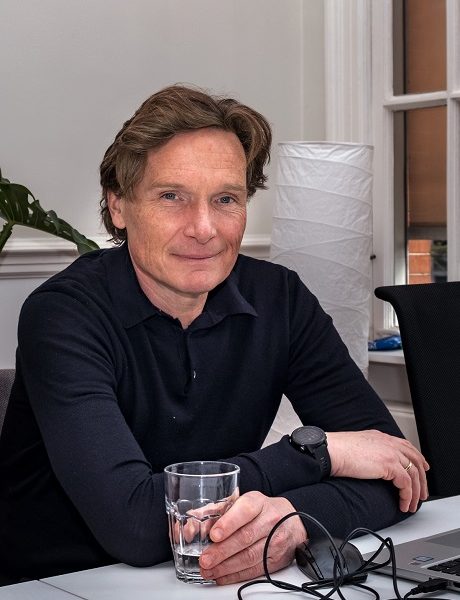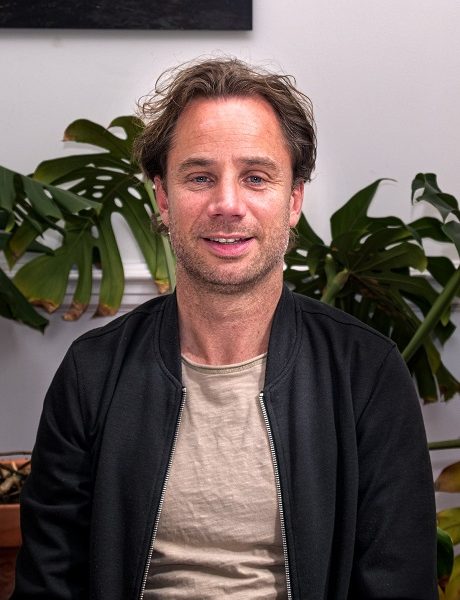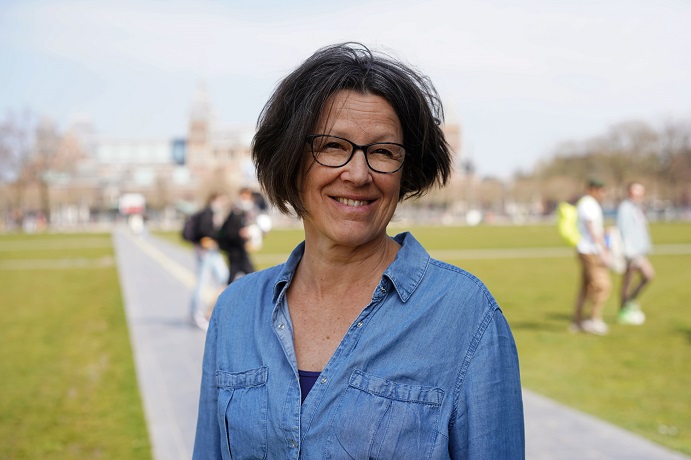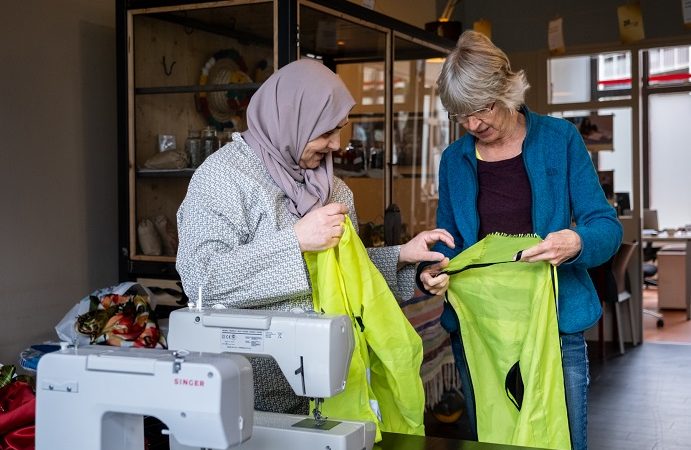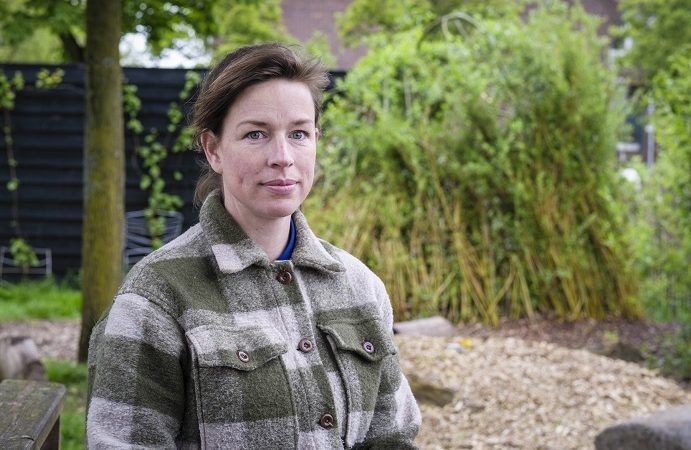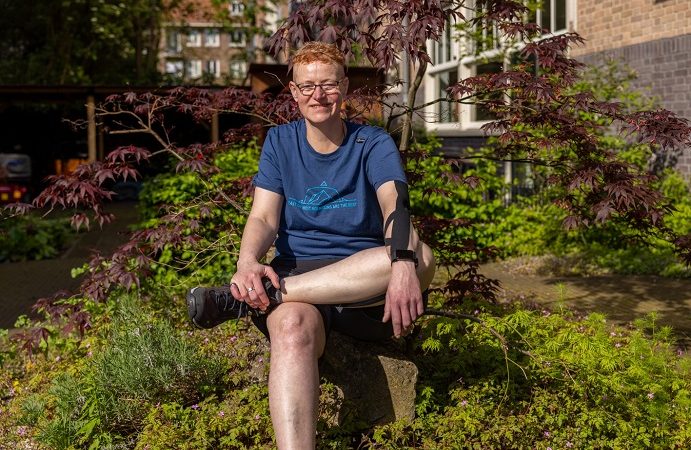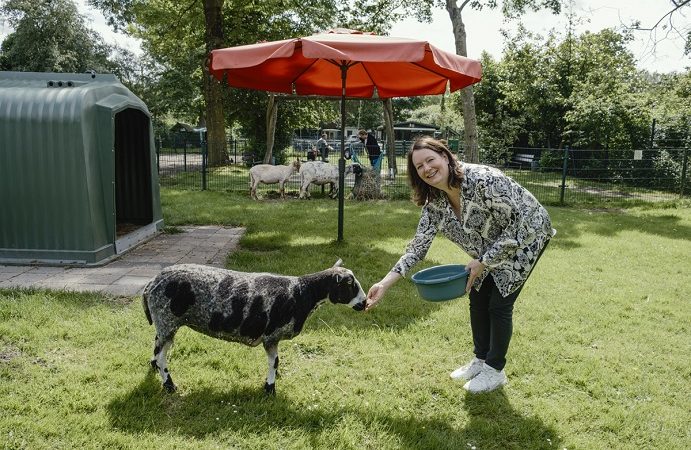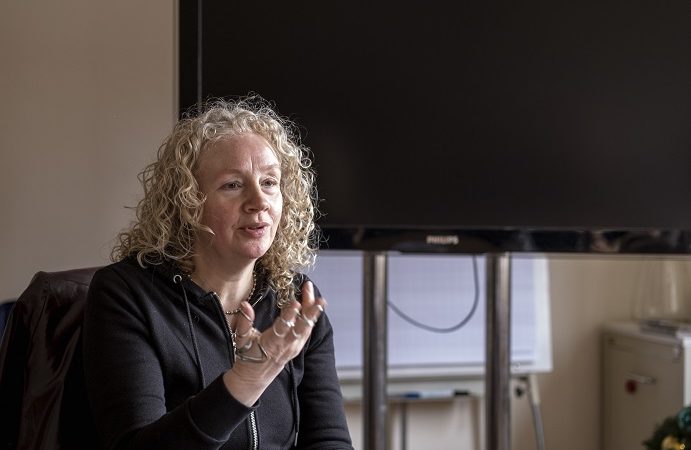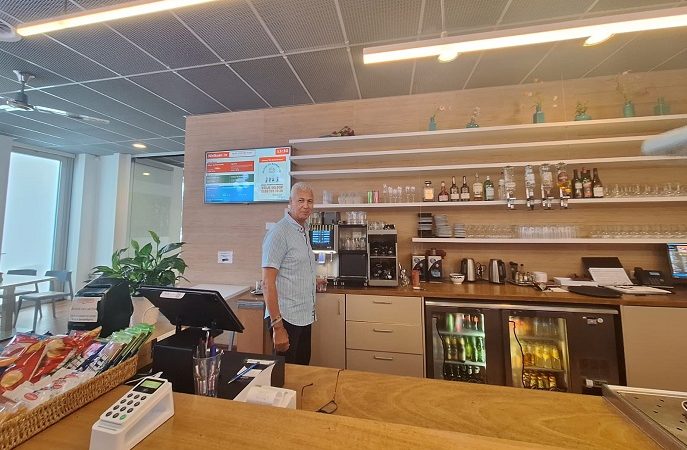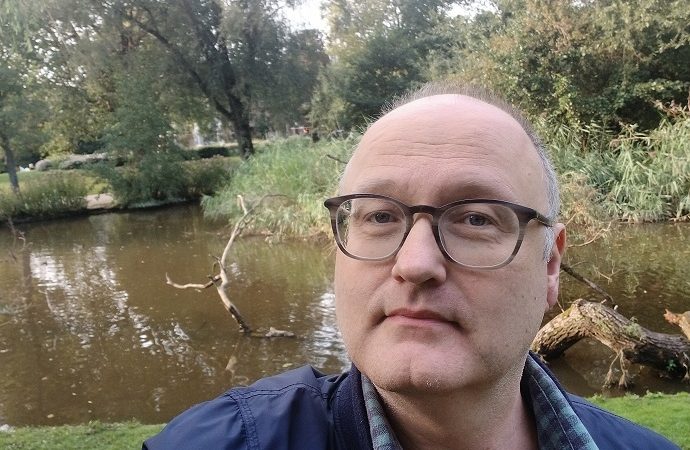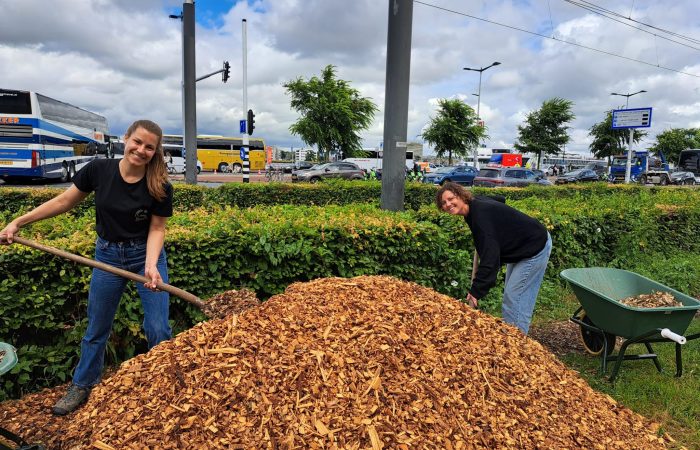At Vrouw en Vaart, women come to further develop themselves. The activities range from empowerment to vocational training and recently a Textile Repair Café. Nabila and Fatiha work here as volunteers: “When you help someone, you also feel better yourself.”
What are the consequences of high pressure on care for Amsterdam volunteers?
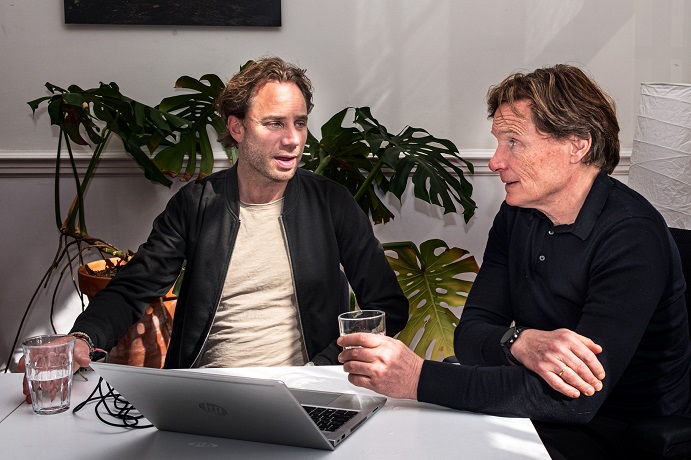
When you do volunteer work, you not only help others but also yourself. Because it gives a goodfeeling of wanting to make a difference for a fellow citizen. That is why numerousAmsterdammers voluntarily provide informal care. But the pressure on volunteers has been increasing lately.time is so great that there is not always a safe and defined work environment. This can lead to a shortage of volunteers.
First the good news: doing volunteer work is an excellent recipe for becoming happy. Look at Lodewijk de Mol van Otterloo (55) from Oud-Zuid. In daily life, he advises wealthy families on their finances. But one afternoon a week, he helps vulnerable Amsterdammers with their home administration through Humanitas. Like a retired taxi driver in Buitenveldert who is afraid to open his mail. Or a former secretary from a law firm who compulsively keeps every piece of paper. Lodewijk: “It is really good for your own sense of happiness to occasionally do something for someone else, without expecting anything in return.”
Step out of your bubble
You also get to know the city outside your bubble. Lodewijk’s first participant was a ceramist with a studio in the Bijlmer. “My children and I had never been there before. On a holiday, my children then did clay work with him. After that, he gave us a tour of the neighborhood. How beautiful is that?”
Alexander Regeling (40) from Tuindorp-Oostzaan works as a volunteer coordinator at Humanitas and matches Lodewijk and other volunteers with participants. “We look for similarities between them. For example, if they both love Ajax, they have something to talk about.” He also sees that volunteers experience a lot of satisfaction. “People want to do something good for their fellow Amsterdammers. That also gives them a good feeling.”
Alexander started doing volunteer work when he moved to Amsterdam Noord. “I saw so much poverty around me, I wanted to do something about it.” He found the work so valuable that he decided to make it his job. “My switch from the commercial sector to Humanitas was indeed a financial step back, but it makes me much happier. People in the supermarket approach me and thank me for the help they receive.”
Volunteers are not professional workers
Volunteer work is becoming increasingly demanding. Research agency De ParticipatiePraktijk sheds light on the cause in the study “Together caring for Amsterdammers.” Due to a shortage of professional caregivers, an irresponsible amount of care work is being shifted to volunteers. This can lead to a decrease in enthusiasm for volunteer work.
“People become dependent on volunteers, even though they are not professionals,” says Alexander. Like an elderly woman in the center. She has mental health issues. Her adult children living at home are in their forties and are taking advantage of her. Or a woman in her late fifties, also in the center, who can no longer take care of herself due to her addiction.
Insufficient healthcare staff available
When faced with such problems, the volunteers of Humanitas sound the alarm. However, the aid organizations often lack sufficient staff to send someone to help. As a result, nothing happens. Alexander: “Volunteers are afraid to let go of their participants and get sucked into the situation.” Lodewijk experienced this himself. Alexander asked him to help a woman with addiction problems move to the Jordaan area. “She lived on the third floor in De Pijp, couldn’t go down the stairs anymore, and hadn’t left the house for two years. I helped her with the administrative part of the move.” The actual move was then the responsibility of the neighborhood team in De Pijp. “Unfortunately, due to staff illness, there was actually no one available,” Lodewijk explains, “So I ended up arranging it myself. In hindsight, that was too much.”
A shortage of volunteers
Alexander also shares this concern. He is afraid that a shortage of volunteers may eventually arise. “I notice that volunteers are becoming more anxious due to this heavier work.” It may also harm the influx of new volunteers. “If you hear from your neighbor that volunteering is tough, you think twice before signing up.” According to Alexander, the solution lies in providing sufficient funding for both formal and informal care. “If money is taken away from formal care, the pressure shifts to informal care, and vice versa. But the municipality keeps tightening the subsidy tap more and more.”
Keep signing up!
What can you do in the meantime as a volunteer yourself? Lodewijk emphasizes the importance of setting boundaries. “I always say in advance that I am there one hour per week.” Furthermore, he hopes that people will continue to sign up as volunteers. “I have come to realize that you can talk theoretically about many things, but it only really helps when you roll up your sleeves. If everyone would do that a little bit, the Netherlands would see”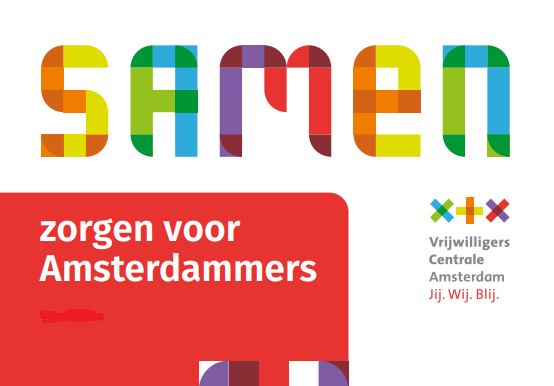 and looks very different.”
and looks very different.”
Viewherethe researchTogether taking care of the people of AmsterdamThank you for using WordPress!Text: Ernst-Jan Pfauth
Image: Peter Lange


